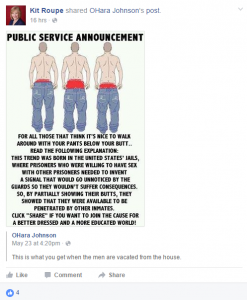Polis responds honorably to accusation he spread fake news on Twitter
Thursday, January 12th, 2017Conservative activist Kelly Maher tweeted yesterday that I should launch “57 tweets” at U.S. Rep. Jared Polis because he tweeted information from a Buzzfeed article with unsubstantiated allegations against Trump. In other words, fake news.
Maher had a serious point, and as I was formulating the 57 tweets she requested, Polis responded to Maher, and, in the end, what he did was mostly in keeping with the guidelines outlined in the Fake News Pledge for Elected Officials.
Polis deleted his tweet with Buzzfeed’s unsubstantiated information (apparently Polis did this before Maher’s tweets), and he had a substantive Twitter conversation with Maher. Polis should have explained why he deleted his tweet, especially after Maher referenced it, but Polis did re-tweet a post from Buzzfeed editor Ben Smith explaining why his outlet published unverified information about Trump.
It was good to see Polis openly engage Maher, which is what you’d hope elected officials would do when presented with evidence that they’re spreading fake news. (Former GOP State Representative Kit Roupe openly discussed her deletion of a fake-news item last week.)
Here’s a portion of the Twitter exchange between Polis and Maher:
Kelly Maher @okmaher: I expect at least 3 Huffpo articles and 57 tweets from @BigMediaBlog [That’s my Twitter handle] aimed at @jaredpolis for sharing “fake news” today. #copolitics #coleg
Jared Polis @jaredpolis: @okmaher @BigMediaBlog why do you think it is fake? Do you have intelligence that I don’t? If so pls share.
Kelly Maher @okmaher: @jaredpolis 1) 4chan took credit 2) all other news orgs passed 3) you deleted your tweet calling it “intel” @BigMediaBlog #copolitics
Kelly Maher @okmaher: @jaredpolis I agree that it needs to be sussed out, but @BigMediaBlog accuses those who share first, then asks questions later. #copolitics
Jared Polis @jaredpolis: @okmaher @BigMediaBlog good so we both agree that the Intel needs to be analyzed and “sussed out.” Consequences if true? Trump resignation?
Kelly Maher @okmaher: @jaredpolis “intel” is an aggressive word. It is CLEARLY unverified and @BigMediaBlog should be consistent about “fake news” #copolitics
Jared Polis@jaredpolis: @okmaher @BigMediaBlog I want it looked into and verified, the charges are very serious
Kelly Maher @okmaher: @jaredpolis This is bad for our entire system of accountability and governance theatlantic.com/politics/archi… @BigMediaBlog #copolitics
Polis didn’t delete tweets with links to CNN and Washington Post stories stating that top intelligence chiefs briefed Trump and Obama on unconfirmed claims that Russia had compromising information about Trump.
That’s a legitimate story. That is, the fact that the intelligence chiefs included these claims in their briefing, and Polis was totally within real-news bounds to comment on it, as he did on his Twitter feed, calling for an investigation.


